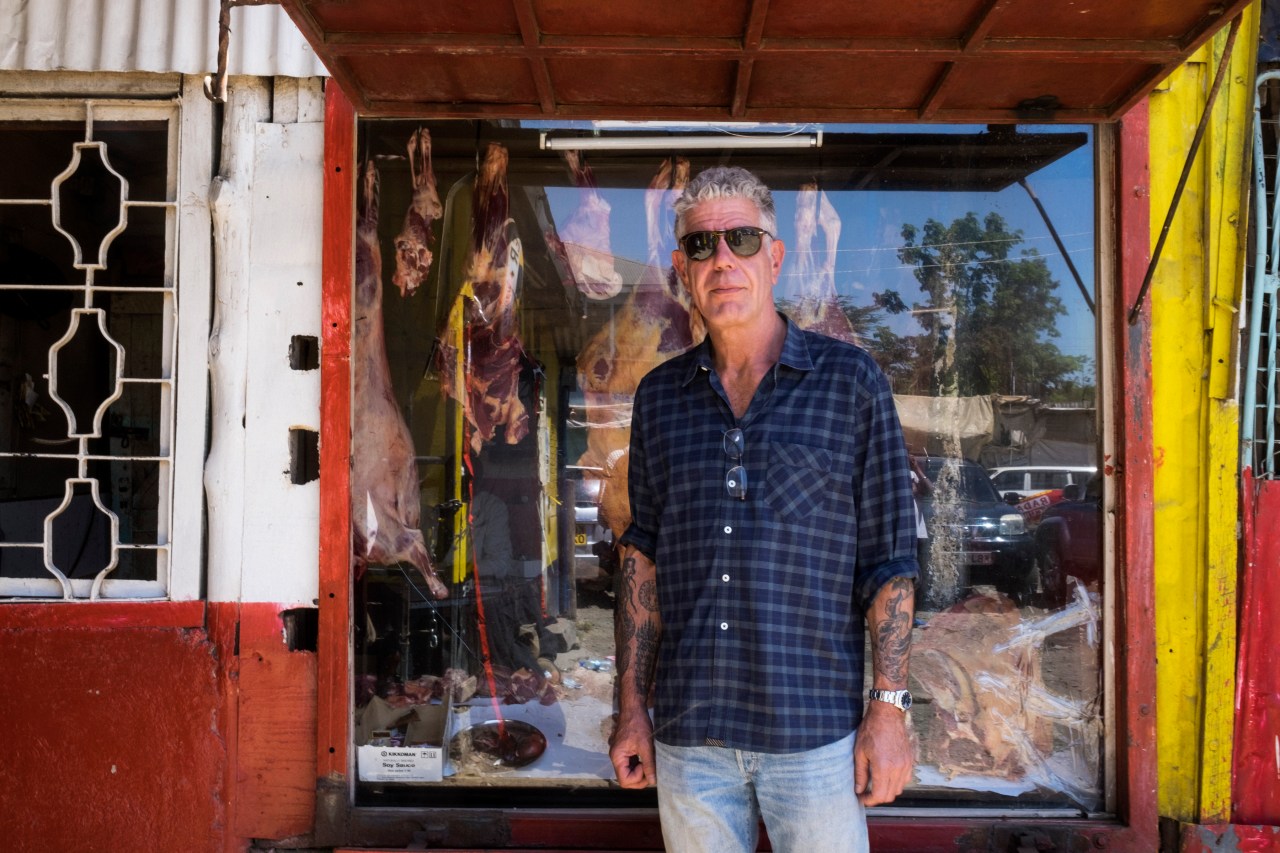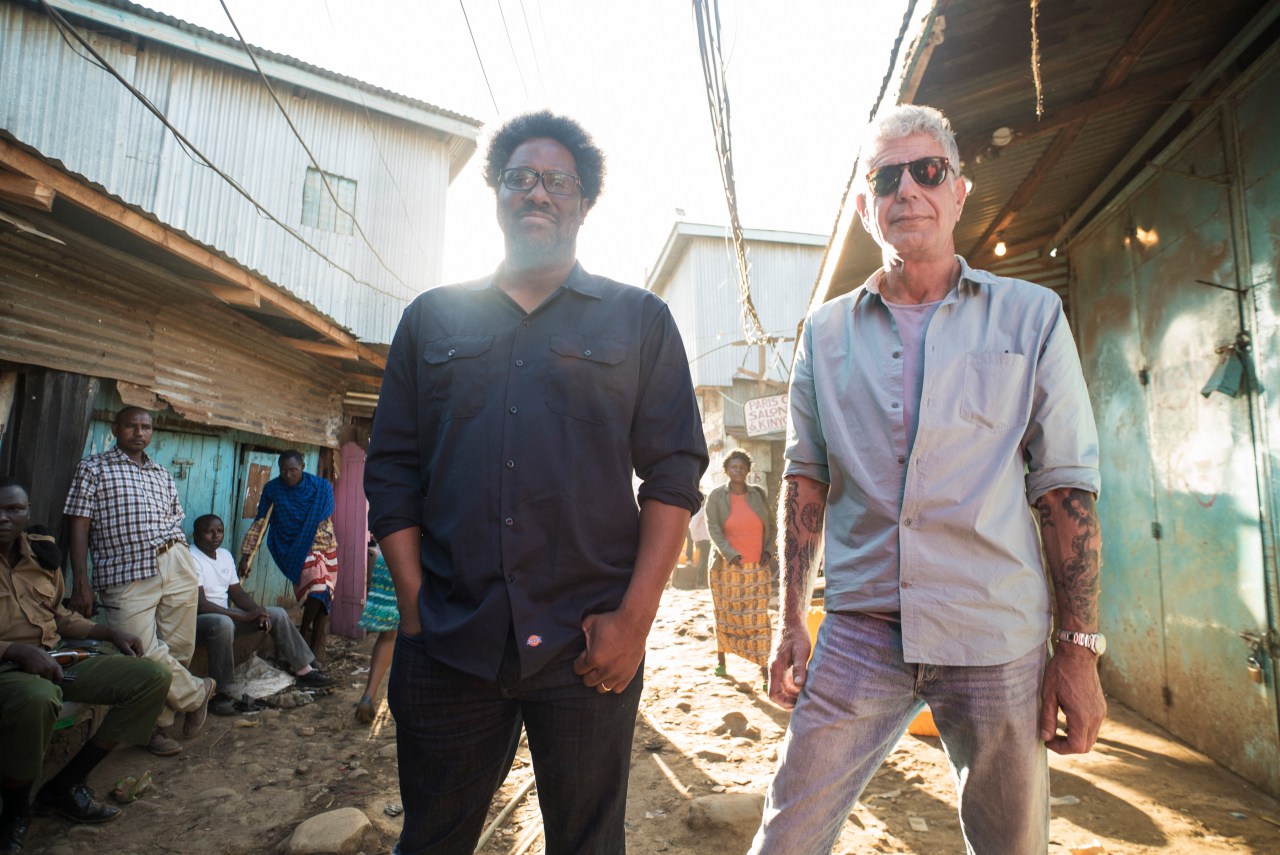Synopsis: Bourdain takes along W. Kamau Bell, comedian and host of CNN’s United Shades of America, to explore Kenya. The two begin their trip in the capital city, Nairobi, where an arts collective is helping children who live in poverty and LGBTQ activists are fighting for civil rights. Bourdain and Bell then travel to the countryside for a safari and visit a Masai village, where Bell has his first taste of cow’s blood, goat’s head, and much more.
On matatus, Nairobi’s uniquely decorated minibuses:
“We want to get into the matatu business in New York. We’re thinking about some improvements. We need a hot tub. This could reinvigorate public transportation as we know it.”
On a peaceful safari:
“They used to shoot animals in safaris. There’s our kind of safari, and then there’s the Trump Jr. safari.”
“If you ever run for president, this should be compulsory viewing.”

On the fight against poaching in Kenya’s wildlife conservancies:
“If the local people are not on your side, you are at a serious disadvantage.”
On telling stories through Parts Unknown:
“Who gets to tell the stories? This is a question asked often. The answer, in this case, for better or for worse, is I do. At least this time out. I do my best. I look; I listen. But in the end—I know—it’s my story. Not Kamau’s. Not Kenya’s or Kenyans’. Those stories are yet to be heard.”
Guests weigh in:
On visiting Africa for the first time:
Kamau Bell: “I think, as a black American, I’m still wrestling with my African-American identity sometimes, and I’m still wondering, Am I doing right by this culture, and does this culture think I’m doing right by them? And that’s why I don’t want to walk around like, I’m home!”

On coming face to face with lions:
Bell: “So we’re headed toward the lion. Is that what we’re doing now?”
Masai safari guide: “If we’re lucky, [the lions] might come down the hill.”
Bourdain: “Lucky?”
Bell: “We define lucky in different ways. [To camera:] To my family, I love you. Just in case.”
On the historic legal battle for LGBTQ rights in Kenya:
Kevin Mwachiro (journalist): “If we win this case, I’m happy and scared at the same time. … There will be people who will be attacked. We’re moving to an extreme end of freedom, and there will be hate.”
On the matatu scene:
Lucia Alessandra Murotto (matatu conductor): “One thing I love about this job is that I meet all types of people, and I don’t look down on them and they don’t look down on me. That’s the best part of it.”
[On the Masai people’s work against poaching]
Jonathan Kip (Masai chief in Il Ngwesi Community): “We are not being driven by Lewa [Wildlife Conservancy] anymore or any white person or any NGO. Lewa is still a great, great neighbor, so we need each other. But we are not really dependent on each other anymore. We value the game, we value the animals, and we know where we’re heading.”